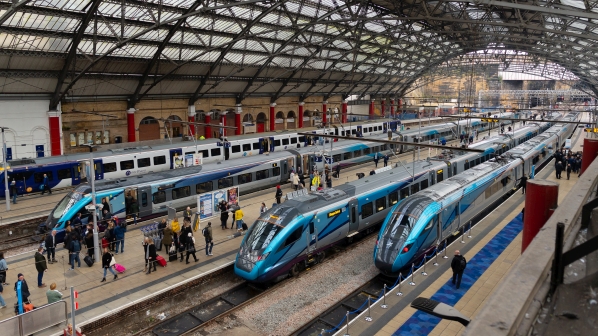This follows the transfer in March of each English passenger franchise into one of the Department for Transport’s (DfT) Operator of Last Resort (OLR) companies for six months under Emergency Measures Agreements (EMA) to prevent operators becoming insolvent due to the huge reduction of passenger traffic - up to 90% in many cases - following the Cornavirus-imposed lockdown.
Two franchises, Northern and LNER, had already been transferred to OLR companies due to poor performance. Other franchises, such as Transpennine Express and South Western Railway (SWR), were also facing the prospect of the DfT taking them back into government control before the outbreak of the Covid-19 pandemic. First Group, which runs Transpennine Express and Great Western Railway and is the majority stakeholder in SWR, acknowledged on July 8 that a “material uncertainty exists” about its ability to continue trading, as plummeting passenger numbers and an inability to sell its American subsidiaries resulted in a pre-tax loss of £299.6m in its 2019-20 annual results to March 2020.
According to the Financial Times, the ONS is reviewing whether to place the train operators’ debts on the government’s balance sheet because the EMA rescue plan has effectively underwritten any losses. In the meantime, the government is considering whether to introduce a follow-up rescue deal running well into 2021.
Nationalisation
Franchisees are naturally concerned that this would effectively result in the nationalisation of most passenger train services in Britain, with little prospect of a new model to replace franchises. The government-commissioned Williams review of franchising should have been published by now, but this was postponed by the DfT due to the pandemic.
In addition, despite the introduction of enhanced hygiene and social distancing measures, the government is continuing to urge people not to travel by rail to help prevent the spread of coronavirus which is undermining any prospect of traffic recovering in the foreseeable future.
“The prospect of reclassification underscores the need for a fundamental reset of the relationship between the public and private sectors in rail, something we have long been calling for and which the Williams review, yet to report, was set up to deliver,” says Mr Paul Plummer, chief executive of the Rail Delivery Group, which represents train operators.
“Government has an opportunity to accelerate the drive to a renewed system as it considers what replaces EMAs, which were put in place as a short-term response to the pandemic, when they end in September. To ensure passenger numbers recover as quickly as possible, which is good for taxpayers, the economy and the environment, new contracts must lock in incentives for the private sector to grow revenue and run the railway safely and efficiently, while also enabling further reform.”
One possible solution could be the replacement of franchises with concessions, similar to those already introduced by Transport for London for Overground services and the future Elizabeth Line. Another option could be the expansion of open-access services on profitable routes. The East Coast Main Line, which already has open-access operators and has seen the failure of three successive franchises, would be a good place to test this out.

